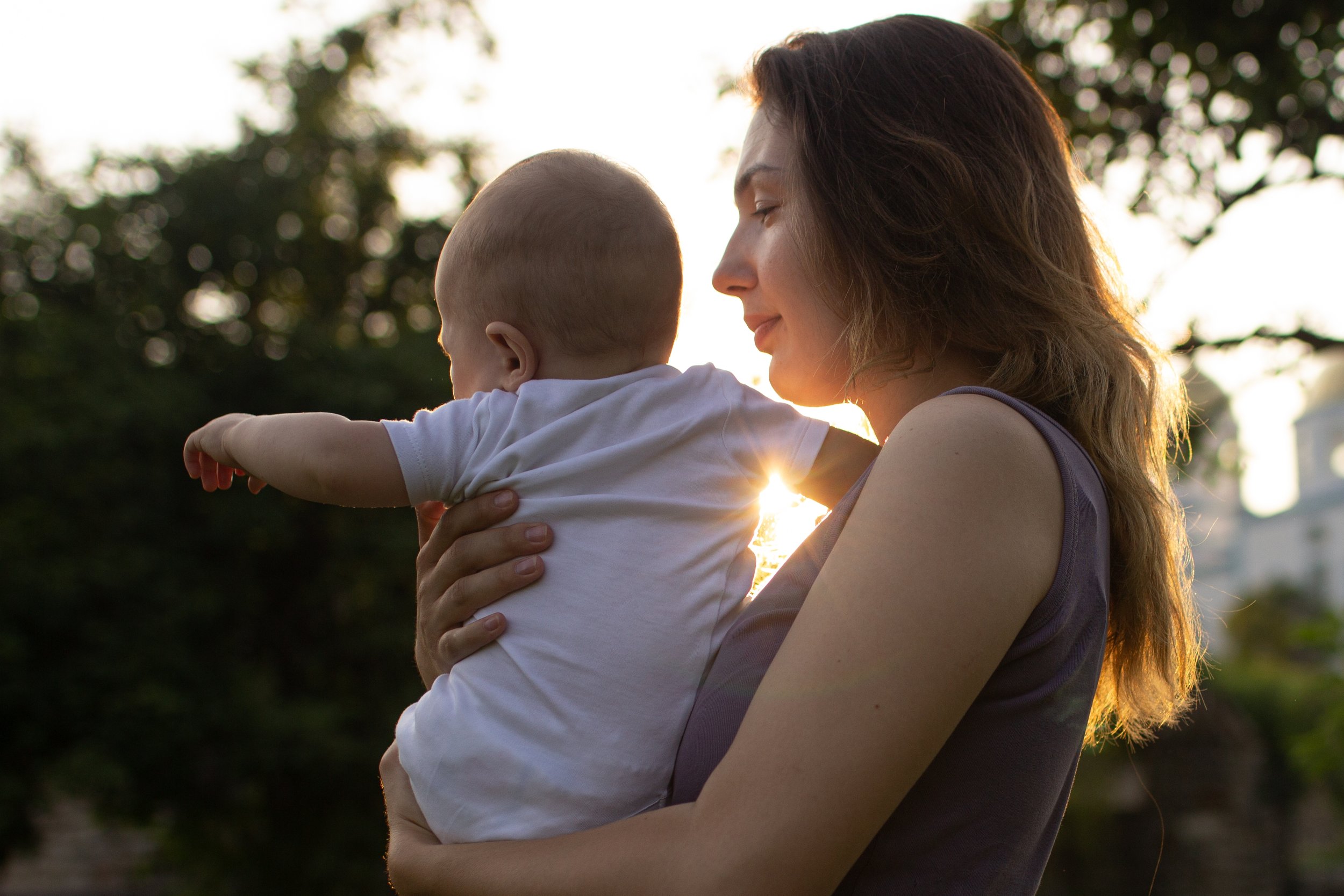
Frequently Asked Questions
Answers to your most common questions.
Early Morning Wakings
What are early morning wakings?
Children who are waking between 4 and 6am are having early morning wakings. Anytime after 6am is considered awake for the day. When you’re speaking about early morning wakings, that’s before 6am.
Why is this happening?
Sleep pressure is low in the early morning
The sun is beginning to rise
Your child has almost had a full nights rest, their melatonin is low but maybe haven’t learned their own way to put themselves back to sleep
How do we fix them?
Blackout curtains - dark room!
Use age appropriate total sleep and wake windows before bed - staying up late does NOT mean sleeping in
Treat an early morning waking like a night waking - utilize your same sleep training techniques and encourage independent sleep
What to Know About Pacifiers
What are appropriate uses for pacifiers?
Allowing baby to have paci when feeling fussy is not a problem
Using them to support car or stroller rides are ok, too!
Replacing a paci during each waking to stop crying can often become problematic
If baby requires the paci to fall asleep, they may become more reliant on it overnight during wakings, as well
How do I support my baby still using one?
Work on skills to replace the paci on their own throughout the day
Only replace the paci once per check-in overnight
Utilize other sleep training methods to provide calming support instead of the paci
If baby is unable to soothe during the day or overnight without it, it may be time to eliminate the paci completely
Overnight Feedings
Is my baby ready to wean off overnight feedings?
Around 3-4 months, many babies can sleep 6-8 hours straight at night with a total of 10-12 hours of night sleep. If your little one is showing signs they’re ready, it might be time to wean those night feedings!
How will I know? What are common clues?
Daytime Clues:
Snacking instead of full feedings
Not interested in eating
Distracted while feeding
Nighttime Clues:
Waking up at the same time each night
Falling asleep quickly after starting to feed
It’s the only thing you’ve tried to put your child back to sleep overnight
Avoiding Sleep Struggles
Am I making my baby’s sleep worse?
It’s true! As parents, we often have the best intentions to help our children sleep better, but sometimes our actions can unintentionally worsen their sleep.
Here are some common ways this can happen:
Inconsistent Routines: Children thrive on predictability, especially when it comes to sleep. Irregular bedtimes can disrupt their natural sleep-wake cycle, making it harder for them to fall asleep and stay asleep.
2. Overtiredness: It seems counterintuitive, but an overtired child can actually have more difficulty falling asleep and staying asleep. This is because their body releases stress hormones like cortisol, making them feel wired and restless.
3. Relying on Sleep Props: If your child relies on things like rocking, feeding, or a pacifier to fall asleep, they may struggle to fall back asleep on their own if they wake up during the night.
4. Too Much Screen Time Before Bed: The blue light emitted from screens can interfere with melatonin production, a hormone that helps regulate sleep.
5. An Unsuitable Sleep Environment: A room that’s too bright, noisy, hot, or cold can disrupt sleep.
6. Lack of Connection: Separation anxiety at bedtime can become worse without intentional, screen free one-on-one time.
Have a Question?
We encourage your questions! If you are wondering about a topic that hasn’t been covered above, feel free to ask us. Use the form to submit a request and we’ll respond if we can provide additional insight.

